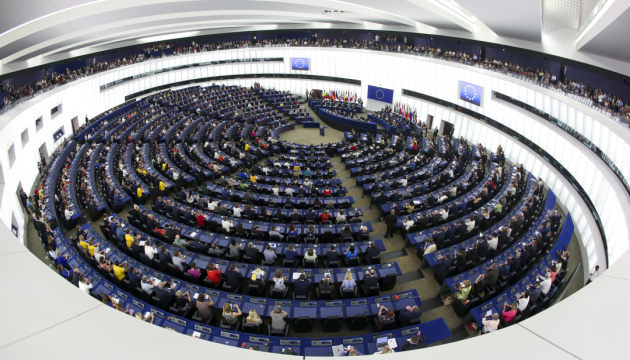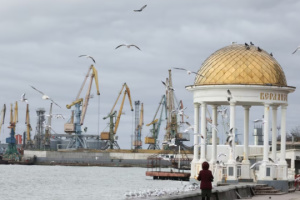
EU endorses criminal liability for dodging sanctions
That’s according to European Parliament’s press service, Ukrinform reports.
With 543 votes in favor, 45 against, and 27 abstentions, the European Parliament has adopted a directive, agreed with member states, on criminalizing the violation and circumvention of EU sanctions. It will introduce a common definition of, and minimum penalties for, violations.
EU sanctions can consist of freezing funds and assets (including crypto-assets), travel bans, arms embargoes, and restrictions on business sectors. While sanctions are adopted at the EU level, enforcement relies on member states, amongst which definitions of sanction violation and associated penalties vary.
The new law sets consistent definitions for violations, including not freezing funds, not respecting travel bans or arms embargoes, transferring funds to persons subject to sanctions, or doing business with state-owned entities of countries under sanction. Providing financial services or legal advisory services in violation of sanctions will also become a punishable offence.
The law also defines the circumvention of sanctions and ensures this is a punishable offence. Examples include concealing or transferring funds that should be frozen, hiding the true ownership of property, and not reporting necessary information. The law specifies that humanitarian assistance or supporting basic human needs should not count as sanctions violations.
The directive ensures punishment for violating and circumventing sanctions is dissuasive by making them criminal offences carrying prison sentences of a maximum of five years in all member states. When companies violate or circumvent sanctions, judges must be able to issue dissuasive fines, although member states can choose whether a judge can impose a maximum penalty based on the worldwide annual turnover of the company, or based on absolute maximum amounts.
Currently, varying penalties can lead to forum shopping - the practice of seeking out the member states with the weakest enforcement. The new law would give judges a wide variety of means to punish violators. In addition to intentional violations, the trade in arms or dual-use items would be also be criminalized in cases of serious negligence.
After the vote, rapporteur Sophie in ’t Veld (Renew, the Netherlands) said: “The Russian invasion benefits from crooks breaking the law in Europe. They must be caught, and forum-shopping must stop. We need this legislation because diverging national approaches have created weaknesses and loopholes, and it will allow for frozen assets to be confiscated. Parliament took an ambitious, harmonizing approach to the law, and even though we could not close all the loopholes we wanted to, it is an improvement on the current situation and shows our strong support to Ukraine.”
The law still needs to be formally approved by the Council, too, before it can become law. It will enter into force twenty days after its publication in the Official Journal of the EU, after which member states will have one year to transpose it into national legislation.
The EU has adopted more than 40 sanctions regimes against third parties as part of its Common Foreign and Security Policy, most recently against Russia following its invasion of Ukraine. However, the Commission finds that inconsistent enforcement of EU sanctions has undermined their efficacy.





